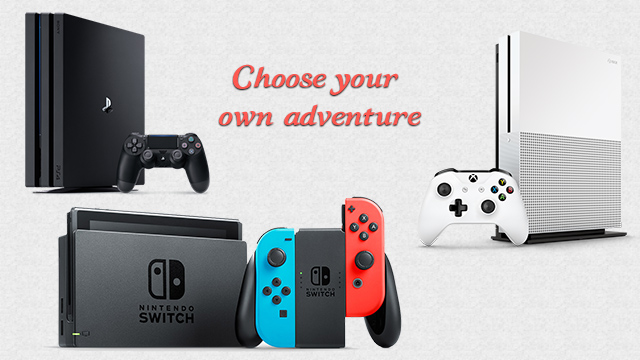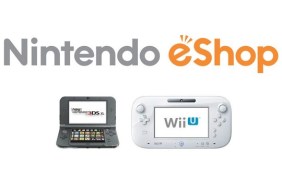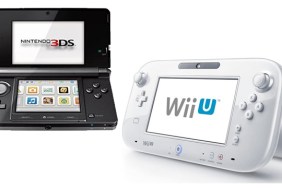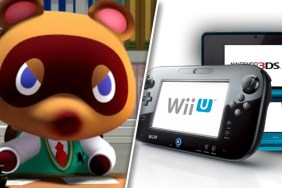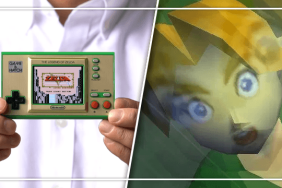With the eighth console generation well underway, the standard blow-for-blow between Sony and Microsoft in place, and Nintendo tossing Wii U and moving on to generation nine prematurely with Switch (though we’ll see how gaming historians decide to categorize that), it seems apt to take stock and see where each major gaming hardware manufacturer stands. When I stopped and took a moment to consider this, I realized something; despite the continuation of certain trends we’ve seen for years (MS vs. Sony boxing match and Nintendo outsider), we’re also witnessing something slowly emerge that we haven’t recently seen. The way I see it, all three hardware makers are headed in entirely different directions, with the final destinations of at least two being, as far as the general public can tell, relatively unknown.
I’ve sectioned-off some quick analysis for each major hardware player below, focusing primarily on strategy with current hardware and how that connects to planned or potential strategy with future hardware. Between the three we have what appears to be a traditionalist, an evolutionist, and something of a playful insurrectionist – read on to see how I’ve broken it down.
Sony
With over 55 million PS4s sold and the PS4 Pro beginning to see some impressive support from developers, there’s little reason for Sony to want to drastically change up the way console cycles operate. The truth is, despite the ups and downs of the competition, there has never been a home PlayStation that hasn’t performed well in the end. The PlayStation 3 is often portrayed this way, largely due to its late arrival after the Xbox 360's one-year and millions-in-sales head start, and a starting MSRP of $599 didn’t exactly help the situation. And yet, in the end the PlayStation 3 eked out the 360 by a hair, settling just under 87 million units sold vs. the 360’s similar position just under 86 million.

With PS2’s dominance, PS3’s sleeper success, and PS4’s return to lofty total sales, there’s little reason for Sony to want to buck the trend of how console generations play out. The PS4 Pro is a solution to a power dilemma; with a graphical jump from PS3 not nearly as vast as that from PS2, Sony needed a way to extend the 8th generation closer to the 7-8 years it prefers and that PlayStation 3 fans have come to expect. PS4’s lifecycle may still fall short of that, but you can expect the traditional ten-year support for at least some games when a successor is released, as well as an eventual successor overwhelmingly likely to be named PlayStation 5. Though innovative when it comes to VR or streaming games, there’s little reason for Sony to move away from a methodology that clearly works for them when it comes to developing and releasing major hardware.
Microsoft
With Microsoft, I’m not convinced the company ever wants to release a theoretical “Xbox Two,” and looking at the landscape I can’t exactly blame them. Still, calling their prospects bleak is disingenuous, and in some some ways they’re just the opposite; sales totals aside (which are decent), Xbox One has cultivated not just a respectable stable of games, but also a deep and growing catalog of backward compatible Xbox 360 titles that Sony’s comparatively costly PlayStation Now streaming service can hardly shake a stick at. Though the cancelation of Scalebound wasn’t exactly a morale-boost for an already scant year on exclusives, the likes of February’s Halo Wars 2 and Crackdown 3 arriving later this year do ease any resulting pains, at least somewhat. Notably, most Xbox One exclusives also release for Windows these days, an important tell when it comes to forecasting Microsoft’s Xbox plans and strategy moving forward.
With the souped-up, 6 teraflop Scorpio planned for release later this year (a device that Microsoft has continuously reiterated is still considered an Xbox One), my feeling is that the company wants to move away from the generational style of major hardware releases. It’s true that Sony also put out a charged-up refresh in the form of PS4 Pro, but their motive (in my view) was to extend the generation and eke more profit and success before the inevitable PS5. In Microsoft’s case, they aren’t strategically stalling; they just never want to release an Xbox Two.
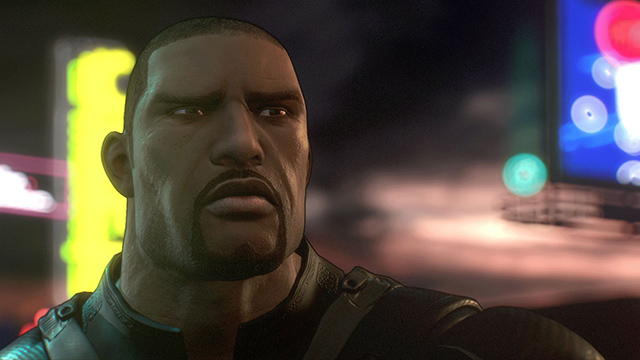
I should stress that this isn't inherently a negative if true, and in fact, there’s a lot I like about it. Scorpio will release, and perhaps there will be a newer or more powerful Xbox One to arrive a year or two after that, and then after one of these iterations it will quietly be announced that certain new games will no longer work on, say, the very first, original Xbox One. This approach pairs well with some of Microsoft’s other recent behaviors, Xbox 360 backward compatibility in particular. Why bother amassing a comprehensive, growing list of BC over time if both it and potentially all Xbox One games will be rendered not-compatible with a theoretical Two anyway? Meanwhile, the lenience in releasing huge Xbox exclusives on Windows explains the concept further; under these circumstances, Xbox simply becomes an affordable, compelling means of playing Microsoft exclusives if you don’t own a monster gaming PC. Given Microsoft’s hold on PC gaming from an operating system perspective, there shouldn’t be anything wrong with that. And of course, much of this is just speculation
Nintendo
So where does that leave Nintendo? Well, it may not really leave them anywhere, but that’s also unlikely to impact the company’s fortunes in any negative way with Switch. The device is already selling at a pace to easily eclipse Wii U, and if the 3DS and Game Boy lineages truly are over, then the company can count on absorbing sales from those buyers over time in addition to wooing the usual home console folks. By emergency-ejecting from a console generation Sony is glad to extend and Microsoft may never want to leave, Nintendo has in a strange way removed itself from The Matrix; for better or worse, it can now develop hardware and whimsical gaming pursuits sans preordained structure, as long as said pursuits positively impact the company’s coffers and general outlook.

Beyond Switch it’s difficult to predict anything in Nintendo’s hardware sphere, though I suspect the device will receive revisions down the line just like all Nintendo handhelds have. At the Switch reveal presentation earlier this year, Shinya Takahashi noted that Switch merges all of Nintendo’s previous hardware. Yet curiously missing is a parallax, glasses-free 3D display panel, something that is likely too cost prohibitive now but would be wonderful to add to a Switch Lite of sorts later. Outside of that there’s little to predict; if the system performs well, Nintendo can drive software to it free of generational shackles, essentially until it gets bored and wants to put out something else. That said, Nintendo is nothing if not unpredictable, so perhaps the rosy freedom I’m painting won't play out so simply, even with sales forecast success. For some things, the only option is to just wait and see.
